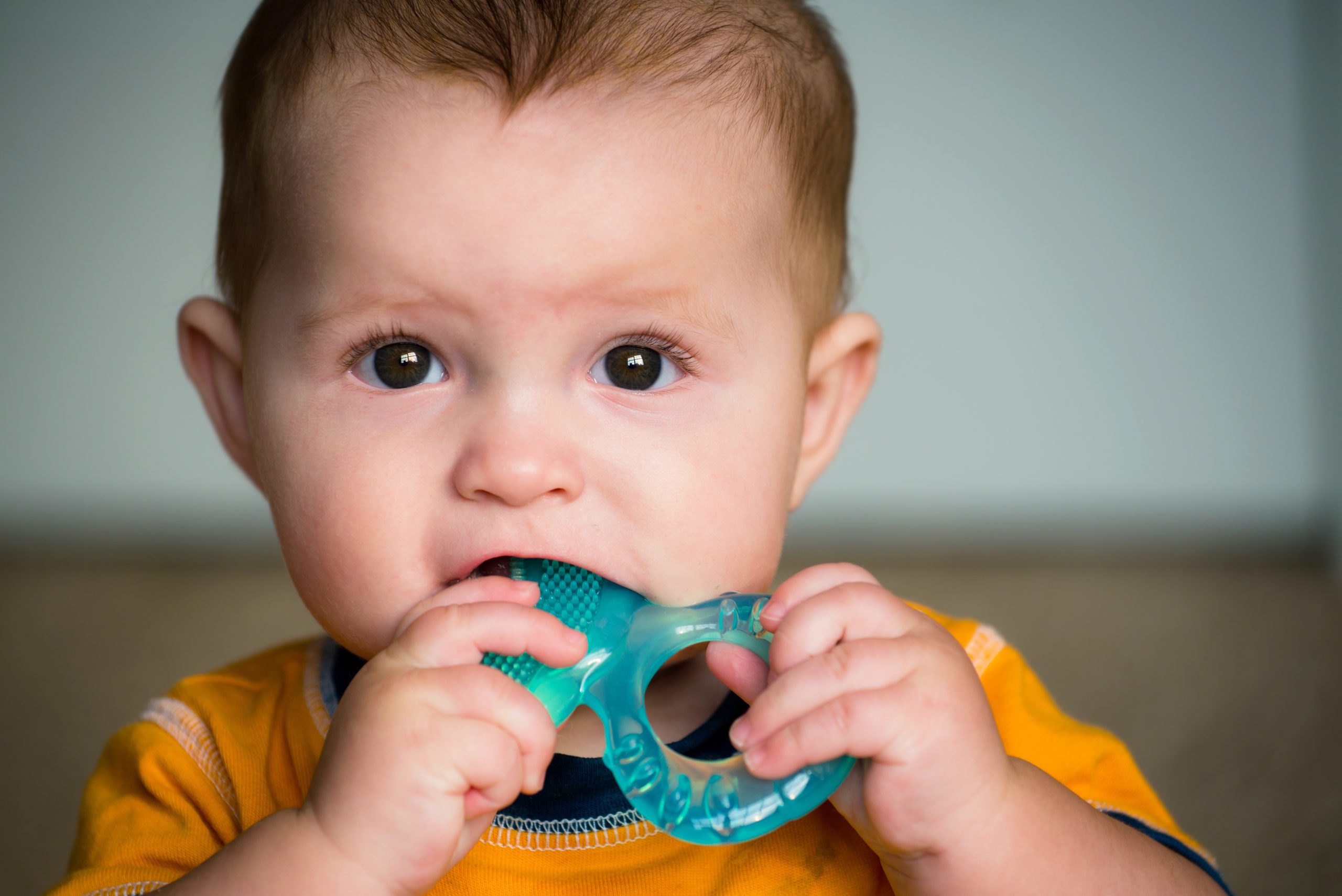Deborah Alford, PPCNP-BC of Texas Children’s Hospital recently discussed the latest and greatest teething tips.
There’s an over-abundance of information on infant teething and the best ways to help your little one through rough teething days, but few address the distinction between what teething is and what it’s not.
Many symptoms associated with teething are not, in fact, caused by teething.
Nurse Alford explains:
What is teething?
Teething, the emergence of baby teeth beneath the gums, can begin as early as 3 months of age, but most babies start to teethe between 4-7 months of age. Common signs of teething may include:
- Excessive drooling
- Desire to chew on hands and most items brought to mouth
- Red, swollen gums
- Visible teeth appearing beneath the gums
- Difficulty sleeping
- Increased fussiness
What is not teething?
Teething is commonly blamed for many other infancy issues, including fever and diarrhea. However, parents should be aware that teething does not cause high fevers, vomiting, diarrhea, rashes, seizures, coughing or cold-like symptoms.
If your baby is fussy and has a fever over 101 degrees Fahrenheit, contact your baby’s health care provider for recommendations. Do not assume the cause is teething.
Recently, topical numbing agents often used to deaden teething pain were declared unsafe by the FDA. Though the instance of complication is small, the results can be incredibly serious:
Unfortunately, some popular teething recommendations initially assumed to be safe have shifted due to developments in product research and safety standards.
Most recently, this includes using products containing the active ingredient benzocaine in infants and children. Benzocaine is a local anesthetic marketed to reduce a variety of painful conditions such as teething, sore throat and canker sores. Common brand name products containing benzocaine, including Anbesol®, Baby Orajel®, Cēpacol®, Cloraseptic® and Orabase®, are available for purchase in most U.S. drug stores and supermarkets, alongside several generic and store brand options.
In May 2018, the U.S. Food and Drug Administration (FDA) issued a warning against administering over-the-counter (OTC) teething products containing benzocaine to infants and children younger than 2 years of age. Benzocaine can lead to a potentially lethal condition called methemoglobinemia, which significantly reduces the amount of oxygen carried through the bloodstream. The FDA has since urged companies manufacturing these products to halt marketing them as teething pain relief for infants and children younger than 2.
There are natural alternatives to the over-the-counter options, as Nurse Alford explains:
The FDA has also recommended that consumers avoid using homeopathic teething tablets and gels with belladonna, which can pose a serious threat to infants and children. Belladonna, commonly known as deadly nightshade, is a plant with extremely toxic leaves and berries that has been used as both a poison and medicine throughout history.
Looking for more information on teething? Read Nurse Alford’s full post here.
Visit The Motherhood Center’s boutique for all your teething needs.
Our in-store boutique is supplied with products that are “Motherhood Center Approved” for Mom and Baby. Whether its to help with teething, cold remedies, or teaching your child to explore with textures – we have the best gifts around Houston for your infant and toddler hand selected by Gabriela Gerhart.



